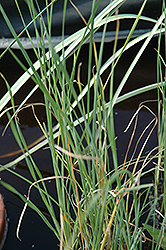Plant Library
Height: 3 feet
Spread: 3 feet
Sunlight:
![]()
Hardiness Zone: 4a
Other Names: Bullrush, Reedmace, syn. Typha lugdunensis
Description:
Although a native variety, it crosses readily with introduced European varieties that can be invasive; use pond containers to control spreading; a marginal plant with narrow leaves suitable for planting in clay bottomed ponds or streams
Ornamental Features
Cattail has masses of beautiful spikes of brown catkins rising above the foliage from mid summer to early fall, which are most effective when planted in groupings. Its grassy leaves are green in colour. The foliage often turns yellow in fall.
Landscape Attributes
Cattail is an herbaceous perennial with a rigidly upright and towering form. Its medium texture blends into the garden, but can always be balanced by a couple of finer or coarser plants for an effective composition.
This plant will require occasional maintenance and upkeep, and should be cut back in late fall in preparation for winter. It is a good choice for attracting birds to your yard, but is not particularly attractive to deer who tend to leave it alone in favor of tastier treats. Gardeners should be aware of the following characteristic(s) that may warrant special consideration;
- Invasive
Cattail is recommended for the following landscape applications;
- Mass Planting
- General Garden Use
- Water Gardens
- Container Planting
- Bog Gardens
Planting & Growing
Cattail will grow to be about 30 inches tall at maturity, with a spread of 3 feet. It grows at a fast rate, and under ideal conditions can be expected to live for approximately 10 years. As an herbaceous perennial, this plant will usually die back to the crown each winter, and will regrow from the base each spring. Be careful not to disturb the crown in late winter when it may not be readily seen!
This plant should only be grown in full sunlight. It prefers to grow in moist to wet soil, and will even tolerate some standing water. It is not particular as to soil type or pH. It is highly tolerant of urban pollution and will even thrive in inner city environments. This species is native to parts of North America. It can be propagated by division.
Cattail is a fine choice for the garden, but it is also a good selection for planting in outdoor pots and containers. With its upright habit of growth, it is best suited for use as a 'thriller' in the 'spiller-thriller-filler' container combination; plant it near the center of the pot, surrounded by smaller plants and those that spill over the edges. It is even sizeable enough that it can be grown alone in a suitable container. Note that when growing plants in outdoor containers and baskets, they may require more frequent waterings than they would in the yard or garden.


